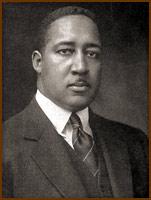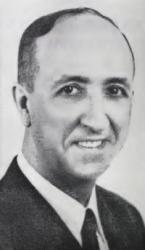Planning worship?
Check out our sister site, ZeteoSearch.org,
for 20+ additional resources related to your search.
- |
User Links
Person Results
Anonymous
Person Name: Unknown Author of "This Little Light of Mine" in Salvation Songs for Children, No. 2 In some hymnals, the editors noted that a hymn's author is unknown to them, and so this artificial "person" entry is used to reflect that fact. Obviously, the hymns attributed to "Author Unknown" "Unknown" or "Anonymous" could have been written by many people over a span of many centuries.
Anonymous
William Farley Smith
1941 - 1997 Adapter of "LATTIMER" in The United Methodist Hymnal
William Farley Smith
Harry Dixon Loes

1895 - 1965 Person Name: Harry Dixon Loes, 1895-1965 Author of "This Little Light of Mine" in Lead Me, Guide Me (2nd ed.) Pseudonyms:
Deal
Bartells
Born Harold Loes, the American gospel song writer took the middle name Dixon in honour of A. C. Dixon, the pastor of Moody Church at the time. Harry Dixon Loes studied at Moody Bible Institute, and after extensive training in music he served a number of churches with a ministry of music. From 1939 until his retirement he was a member of the music faculty of Moody Bible Institute. He wrote the lyrics for 1,500 gospel songs, and composed 3,000 tunes.
One day in 1915, Paul Rader preached a sermon in Moody Church, in Chicago. His theme was, “All that I want is in Jesus.” In the congregation was young Harry Dixon Loes, then a senior at Moody Bible Institute, where he would eventually teach. Inspired by Dr. Rader’s message, Harry Loes wrote the words and music for a song he called "All Things in Jesus." It was first sung by the church’s youth group.
Friends all around me are trying to find
What the heart yearns for, by sin undermined;
I have the secret, I know where ’tis found:
Only true pleasures in Jesus abound.
All that I want is in Jesus.
He satisfies, joy He supplies;
Life would be worthless without Him;
All things in Jesus I find.
Some carry burdens whose weight has for years
Crushed them with sorrow and blinded with tears.
Yet One stands ready to help them just now,
If they will humbly in penitence bow.
--http://wordwisehymns.com/2010/02/09/
==================
Harry Dixon Loes was born in Kalamazoo, Michigan, on October 20, 1892. After serving several churches as music director and later being active for more than twelve years in evangelist work, he joined the music faculty of Moody Bible Institute, in 1939, where he remained as a popular music teacher until his death in 1965. Mr. Loes was the writer of numerous gospel songs and choruses.
One day, while listening to a sermon on the subject of Christ's atonement entitled “Blessed Redeemer,” Mr. Loes was inspired to compose this tune. He then sent the melody with the suggested title to Mrs. Christiansen, a friend for many years, asking her to write the text. The hymn first appeared in Songs of Redemption, compiled by Marin and Jelks, in 1920, and published by the Baptist Home Mission Board, Atlanta, Georgia.
--http://www.gracecommunitycog.org/
Harry Dixon Loes
Raquel Mora Martínez
b. 1940 Translator (sts. 1, 2) of "This Little Light of Mine (Mi Pequeñita Luz)" in Oramos Cantando = We Pray In Song Raquel Martinez (b. January 17, 1940) is a well-known composer and arranger of Hispanic songs and hymns. She has degrees from the University of Texas at El Paso and Perkins School of Theology and the School of the Arts, Southern Methodist University. She served as editor of the official United Methodist hymnal, Mil Voces Para Celebrar (Nashville: Abingdon Press, 1996).
--www.gbod.org/lead-your-church/hymn-studies/
Raquel Mora Martínez
Nolan Williams
Person Name: Nolan Williams, Jr. b. 1969 Arranger of "LIGHT OF MINE" in African American Heritage Hymnal
Nolan Williams
J. Jefferson Cleveland
1937 - 1986 Person Name: J. Jefferson Cleveland, 1937- Arranger of "[This little light of mine]" in Songs of Zion Judge Jefferson Cleveland (1937-1986) was one of the most important scholars and editors of African-American congregational song of the 20th century. Along with Verogla Nix, he edited what is arguably the most groundbreaking collection of African-American song in the last half of the 20th century, Songs of Zion (1981/1982).
Lutheran hymnologist Marilyn Stulken provides a biographical sketch of Cleveland’s life and accomplishments. Born in Georgia, Cleveland graduated from Clark College (Atlanta), Illinois Wesleyan University and received his doctorate in education from Boston University.
He served on the faculty of three historically black Christian colleges: Claflin College (South Carolina), Langston University (Oklahoma), and Jarvis Christian College (Texas), before teaching at the University of Massachusetts and Wesley Theological Seminary in Washington, D.C.
Cleveland’s musical arrangements, historical research and scholarship on the performance practice of African-American song have proven invaluable for the advancement of black gospel song, not only among African Americans, but also in Anglo hymnals to the present day. For example, Cleveland’s essay, “A Historical Account of the Hymn in the Black Worship Experience,” in Songs of Zion is a helpful introduction for laypersons and scholars alike.
In addition to serving as a hymnody consultant for the United Methodist General Board of Discipleship, he toured the United States and Africa in 1981 and Europe in 1984 as a teacher, lecturer and performer.
--www.umportal.org/
J. Jefferson Cleveland
Ronald F. Krisman
Person Name: Ronald F. Krisman, b. 1946 Translator (st. 3) of "This Little Light of Mine (Mi Pequeñita Luz)" in Oramos Cantando = We Pray In Song
Ronald F. Krisman
John W. Work

1901 - 1967 Person Name: John W. Work, 1901-1967 Adapter of "LATTIMER" in One Lord, One Faith, One Baptism John Wesley Work III (1901-1967)
Composer, educator, choral director, and ethnomusicologist John Wesley Work III was born on June 15, 1901, in Tullahoma, Tennessee, to a family of professional musicians. His grandfather, John Wesley Work, was a church choir director in Nashville, where he wrote and arranged music for his choirs. Some of his choristers were members of the original Fisk Jubilee Singers. His father, John Wesley Work Jr., was a singer, folksong collector and professor of music, Latin, and history at Fisk, and his mother, Agnes Haynes Work, was a singer who helped train the Fisk group. His uncle, Frederick Jerome Work, also collected and arranged folksongs, and his brother, Julian, became a professional musician and composer.
Work began his musical training at the Fisk University Laboratory School, moving on to the Fisk High School and then the university, where he received a B.A. degree in 1923. After graduation, he attended the Institute of Musical Art in New York City (now the Julliard School of Music), where he studied with Gardner Lamson. He returned to Fisk and began teaching in 1927, spending summers in New York studying with Howard Talley and Samuel Gardner. In 1930 he received an M.A. degree from Columbia University with his thesis American Negro Songs and Spirituals. He was awarded two Julius Rosenwald Foundation Fellowships for the years 1931 to 1933 and, using these to take two years leave from Fisk, he obtained a B.Mus. degree from Yale University in 1933.
Work spent the remainder of his career at Fisk, until his retirement in 1966. He served in a variety of positions, notably as a teacher, chairman of the Fisk University Department of Music, and director of the Fisk Jubilee Singers from 1947 until 1956. He published articles in professional journals and dictionaries over a span of more than thirty years. His best known articles were "Plantation Meistersingers" in The Musical Quarterly (Jan. 1940), and "Changing Patterns in Negro Folksongs" in the Journal of American Folklore (Oct. 1940).
Work began composing while still in high school and continued throughout his career, completing over one hundred compositions in a variety of musical forms -- for full orchestra, piano, chamber ensemble, violin and organ -- but his largest output was in choral and solo-voice music. He was awarded first prize in the 1946 competition of the Federation of American Composers for his cantata The Singers, and in 1947 he received an award from the National Association of Negro Musicians. In 1963 he was awarded an honorary doctorate from Fisk University.
Following Work's collection Negro Folk Songs, the bulk of which was recorded at Fort Valley, he and two colleagues from Fisk University, Charles S. Johnson, head of the department of sociology (later, in October 1946, chosen as the university's first black president), and Lewis Jones, professor of sociology, collaborated with the Archive of American Folk Song on the Library of Congress/Fisk University Mississippi Delta Collection (AFC 1941/002). This project was a two-year joint field study conducted by the Library of Congress and Fisk University during the summers of 1941 and 1942. The goal of the partnership was to carry out an intensive field study documenting the folk culture of a specific community of African Americans in the Mississippi Delta region. The rapidly urbanizing commercial area of Coahoma County, Mississippi, with its county seat in Clarksdale, became the geographical focus of the study. Some of the correspondence included in this collection between Work and Alan Lomax, then head of the Archive of American Folk Song, touches on both the Fort Valley and the emerging Fisk University recording projects.
John Wesley Work died on May 17, 1967.
--memory.loc.gov/ammem/ftvhtml/
John W. Work
Alma Blackmon
1921 - 2009 Person Name: Alma Blackmon, 1921-2009 Arranger of "LATTIMER" in One Lord, One Faith, One Baptism
Alma Blackmon
V. O. Fossett

1904 - 1964 Arranger of "[This little light of mine]" in Celestial Songs Died: December 20, 1964.
Buried: Laurel Land Memorial Park, Dallas, Texas.
A native of DeKalb County, Alabama, Fossett attended his first Gospel Music School at age 12. At age 16, he attended Thomas Mosley’s Normal School. By age 19, he began singing and playing in a quartet. By 1937, he was teaching in High Point, North Carolina, where he married Katherine Strother. Three years later, he joined the Chattanooga, Tennessee, office of the Stamps-Baxter music publishers. Fossett’s works include:
Fossett’s Inspirational Melodies (Dallas, Texas: Stamps-Baxter Music & Printing Company, 1952)
--www.hymntime.com/tch/
V. O. Fossett


 My Starred Hymns
My Starred Hymns


